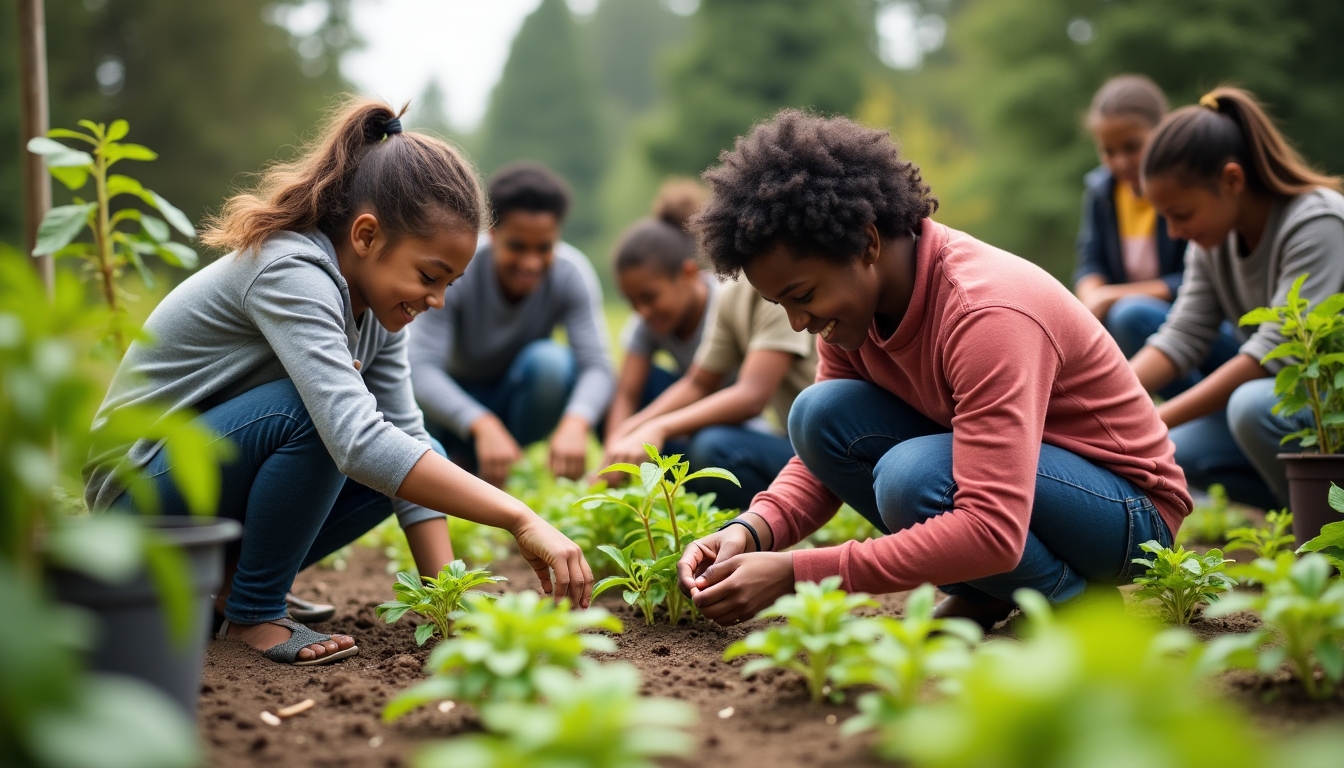Skills Development through Volunteering: A Case Study in Service Learning
By , April 23, 2025
Introduction
Service learning is more than just volunteering; it's a powerful educational approach that combines community service with academic learning. By engaging in service learning projects, students not only contribute to their communities but also develop crucial skills that prepare them for future careers and civic engagement.
According to the National Service-Learning Clearinghouse, service learning is "a teaching and learning strategy that integrates meaningful community service with instruction and reflection to enrich the learning experience, teach civic responsibility, and strengthen communities."
In this article, we'll explore how service learning boosts student skills through a detailed case study of a community garden project. We'll also discuss top grant providers for service learning initiatives and provide tips for securing funding.

Case Study: Community Garden Project
At XYZ University, a group of students embarked on a service learning project to create a community garden in partnership with a local non-profit organization. The project aimed to address food insecurity in the neighborhood while providing students with hands-on learning opportunities.
The students were responsible for every aspect of the project, from initial planning to execution. They conducted research on sustainable gardening practices, developed a budget, and secured funding through a grant from the ABC Foundation.
Throughout the project, students faced various challenges, such as inclement weather and limited resources. However, they persevered, demonstrating resilience and problem-solving skills. For example, when a sudden frost threatened the young plants, the students quickly mobilized to cover the garden with protective sheets, saving the crops.

Skills Developed through the Project
The community garden project provided students with numerous opportunities to develop essential skills:
- Project Management: Students learned to plan and execute a complex project, managing timelines, resources, and team members.
- Fundraising: By securing a grant, students gained experience in writing proposals and budgeting.
- Communication: Interacting with community members, non-profit staff, and fellow students honed their verbal and written communication skills.
- Teamwork: Collaborating with a diverse group taught students how to work effectively in teams.
- Problem-Solving: Addressing unexpected challenges, like weather issues, required creative thinking and adaptability.
- Leadership: Taking on roles such as project coordinator or team leader allowed students to develop leadership abilities.
These skills are not only valuable in academic settings but also highly sought after by employers.
How Service Learning Boosts Student Skills
Service learning enhances skill development through several mechanisms:
- Real-World Application: Students apply theoretical knowledge to practical situations, deepening their understanding.
- Reflection: Regular reflection activities help students connect their service experiences to academic concepts and personal growth.
- Mentorship: Working with community partners provides opportunities for mentorship and professional development.
- Networking: Service learning projects allow students to build networks with professionals and community leaders.
A study published in the Journal of Experiential Education found that students who participate in service learning report higher levels of skill development compared to those who do not.

Top Service Learning Grant Providers
Funding is crucial for the success of service learning projects. Here are some top grant providers:
- Corporation for National and Community Service (CNCS): Offers grants through programs like AmeriCorps and Learn and Serve America.
- U.S. Department of Education: Provides funding for service learning initiatives through various grants and programs.
- Private Foundations: Organizations like the Bill & Melinda Gates Foundation and the Ford Foundation support service learning projects that align with their missions.
For more information on grant opportunities, visit the CNCS website.
Securing Funding for Service Learning Projects
To secure funding for your service learning project, consider the following tips:
- Identify Potential Funders: Research organizations that support initiatives similar to your project.
- Develop a Strong Proposal: Clearly outline your project's objectives, expected outcomes, and budget.
- Demonstrate Community Partnerships: Show how your project involves collaboration with community organizations.
- Highlight Student Involvement: Emphasize the educational benefits and skill development opportunities for students.
Remember, grant providers often look for projects that have a sustainable impact and strong community support.
Conclusion
Service learning is a win-win for students and communities. Through projects like the community garden initiative, students develop essential skills while making a positive difference. By securing funding from grant providers and following best practices, educators and students can create impactful service learning experiences.
If you're a student, consider getting involved in service learning to boost your skills and contribute to your community. If you're an educator, explore ways to integrate service learning into your curriculum.